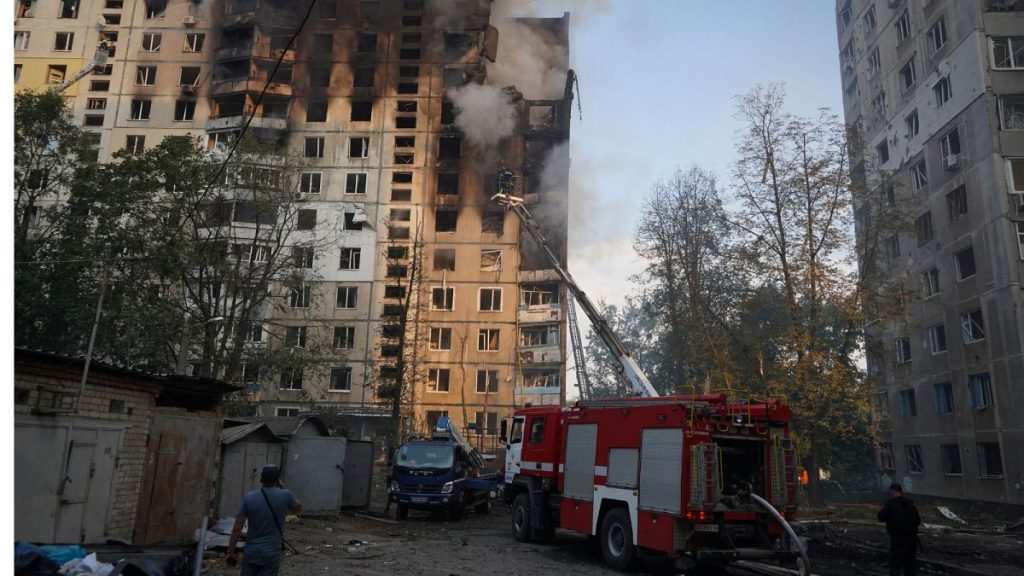A Russian attack on the northeastern city of Kharkiv resulted in the deaths of six people, including a 14-year-old girl, and wounded 47 others. The bombs struck five locations across the city, causing extensive damage. President Zelenskyy called on Western partners to remove restrictions on what the Ukrainian military can target with donated weapons, in light of the attack on Kharkiv. Following the attack, Zelenskyy fired the commander of the country’s air force, Lt. Gen. Mykola Oleshchuk, four days after an F-16 warplane crashed during a Russian bombardment. Military analysts believe that F-16s, which have been delivered to Ukraine by European countries, will provide an opportunity to hit back at Russia’s air superiority.
The Russian army is making slow but gradual progress in its drive into eastern Ukraine, while Ukrainian forces are holding ground in the Kursk border region of western Russia after a recent incursion. The F-16 that crashed in Ukraine was the first reported loss of the aircraft in the country. Ukrainian officials welcomed the supersonic jets for their ability to carry modern weapons used by NATO countries but acknowledged that they may not be a game-changer in the conflict due to Russia’s large air force and sophisticated air defense systems. Despite this, the loss of Western-provided military equipment in the fighting has been a concern, as it can impact Ukraine’s ability to operate F-16s effectively.
A Ukrainian lawmaker accused the Patriot air-defense system of downing the F-16, leading to a public dispute with the commander of the air force. The Institute for the Study of War noted that any loss of the limited number of F-16s and trained pilots will have a significant impact on Ukraine’s ability to operate them. European Union defense ministers have agreed to boost their training program for Ukrainian troops, raising the target to 75,000 by the end of the year. This training program, conducted outside Ukraine, is aimed at enhancing the capabilities of Ukrainian forces to defend against Russian aggression. Additionally, the EU plans to establish a small coordination and liaison cell in Kyiv to improve the effectiveness of the training effort and support Ukrainian troops.
The attack on Kharkiv, which killed six people and wounded dozens, highlighted the ongoing conflict in Ukraine and the need for continued support from Western partners. President Zelenskyy called for stronger decisions from allies to halt Russian aggression and provide the Ukrainian military with capabilities to counter threats effectively. The firing of the air force commander following the crash of an F-16 further underscored the importance of protecting military personnel and strengthening the country’s defense. With the EU’s commitment to increasing training for Ukrainian troops, there is hope for enhanced capabilities and improved coordination to counter Russian advances in the region. As the conflict continues, the international community’s support remains crucial for Ukraine’s defense and security.


